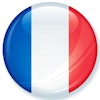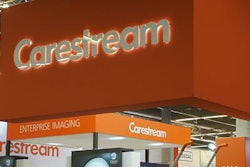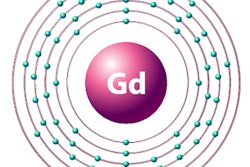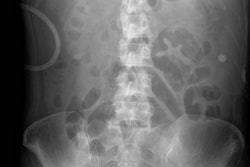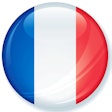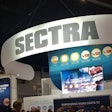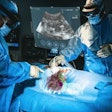Contrast agent manufacturer Guerbet has voluntarily changed the labeling for its Optimark linear gadolinium-based contrast agent (GBCA) for MRI studies.
The company's move comes after the Pharmacovigilance Risk Assessment Committee (PRAC) of the European Medicines Agency (EMA) recommended that the marketing authorization for Optimark and three other gadolinium contrast agents be suspended following reports of gadolinium retention in patients who had received scans with the products. PRAC noted that macrocyclic gadolinium agents do not seem to have the same issue of gadolinium deposition as the linear products.
In a March 31 announcement, Guerbet said it supported the PRAC's recommendation, and noted the difference between Optimark and Dotarem, its macrocyclic MRI agent that's not subject to the recommendation. The company further pointed out that although the PRAC recommendation only applies to the European market, the company has changed the labeling in the U.S. for Optimark after getting approval from the U.S. Food and Drug Administration (FDA) in August 2016.
The labeling change is included in the pharmacokinetics section of the Prescribing Information for Optimark, and notes as follows: "Increased signal intensity on noncontrast T1-weighted images within the brain, mainly the globus pallidus and the dentate nucleus, has been observed after multiple administrations of linear (ionic and nonionic) gadolinium-based contrast agents due to gadolinium deposition."
